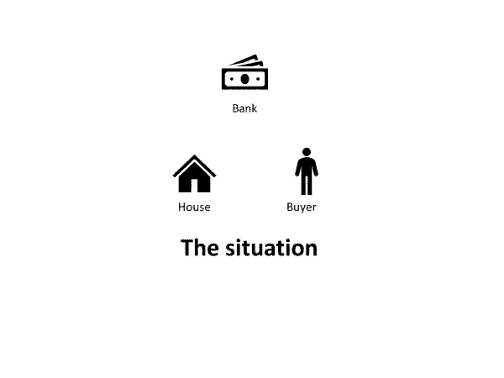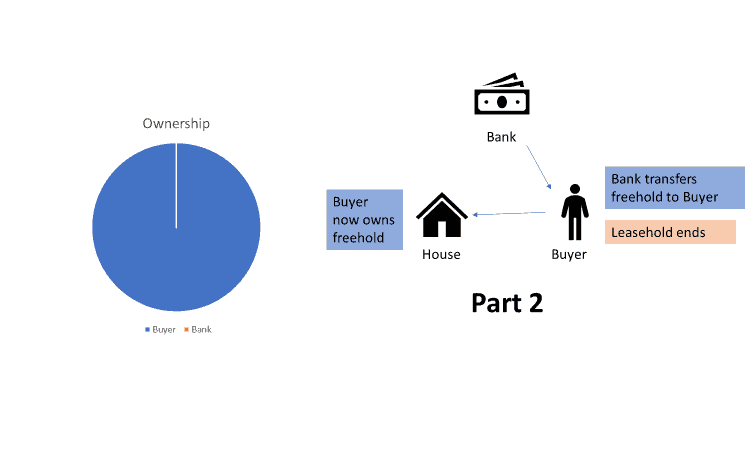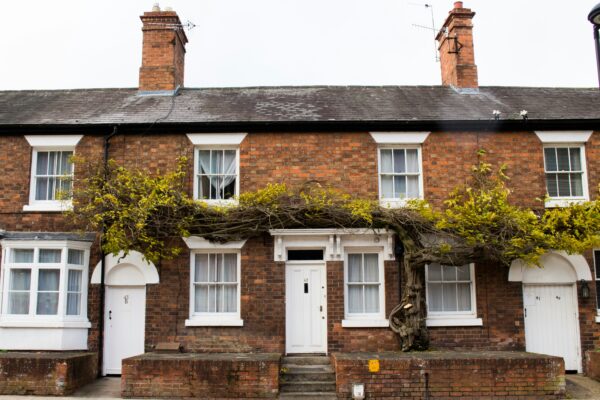
6 Wealth-Building Lessons from Khadijah (RA) Every Muslim Should Know
03 December 2025 8 min read


Mohsin Patel
Co-founder
13 min read
Last updated on:
For the first time ever, we have exhaustively gone through Gatehouse Bank’s Islamic Mortgage, also known as the Home Purchase Plan (the “HPP”).
We are confident that nothing as detailed as this has been done for the Gatehouse HPP. In this article we examine the legal, Islamic, commercial and practical aspects of the HPP informed by:
Looking to take out an Islamic mortgage? You should definitely check out our Islamic mortgage comparison engine.
This is a long article so we want to make your life easy with a quick summary of our findings.
From our personal perspectives, Ibrahim currently has a Gatehouse mortgage and has previously had an Al Rayan mortgage, while Mohsin opted for Heylo Housing (but plans to shift to Gatehouse or Al Rayan in the coming years). So we have first-hand experience of the Gatehouse product.

The Gatehouse Islamic mortgage is structured as a HPP. It is pretty much identical in legal form to the Al Rayan HPP.
The HPP is a regulatory structure that was specifically created through legislation to assist the Islamic finance industry in being able to provide an Islamic alternative to mainstream mortgages.
Warning: some legal jargon coming up which we’ll explain just below.
For a product to be a legal HPP structure, the bank must hold the buyer’s beneficial interest on trust to be delivered over to the buyer once he has paid off the amount necessary to buy the full interest in the property. At this point the buyer will be transferred over the legal title and will hold complete legal and beneficial interest in the property.
Simply put, a legal owner of a property is the “formal” owner of the property, i.e. the one whose name is on the freehold title at the Land Registry. A beneficial owner is someone who has the right to enjoy or benefit from the property, and this can include the right to any income from the property or to reside in the property.
To complicate matters further, an interest in a house can be a freehold or a leasehold. A leasehold interest is different from a freehold in that it is necessarily time-restricted. A leasehold could be for a few days, or many hundreds of years, but eventually it will expire. When it does expire, the freehold owner will be able to step in and take possession of the property.
The Gatehouse HPP uses a combination of freehold and leasehold to deliver a diminishing musharakah/ijarah model (N.B. that musharakah means “partnership” and “ijarah” means rent).
This Islamic finance model goes thus: the buyer of the property slowly buys more and more of the house over time, and his rental payment on the amount he does not own slowly decreases at the same proportion. Eventually he owns the entire house and is no longer paying any rent.
This is a little diagram of how the whole thing works:

So the situation is that the Buyer wants to buy the House, but he doesn’t have enough money to buy outright. But he does have enough for a 25% deposit. So he approaches Gatehouse bank – and this is what happens:

Gatehouse buys the freehold title in the house at the closing of the transaction, and it is its name that appears on the title. But the buyer gets an equitable interest in the freehold by way of the contract (the Diminishing Musharaka Agreement – more on that below) and also gets a leasehold alongside Gatehouse. This leasehold can only be sold or ended by the consent of Gatehouse, but it does put the buyer on a more secure and long-term footing than a shorter lease would.
 Time passes, the Buyer continues paying rent and buying further equity in the house until eventually he owns 100%.
Time passes, the Buyer continues paying rent and buying further equity in the house until eventually he owns 100%.
At this point the Bank transfers over the freehold interest in the property to the Buyer, the leasehold ends, and all charges in favour of the Bank are removed from the charges register.
HMRC is thankfully agreeable to only charging Stamp Duty Land Tax (“SDLT”) once, and so SDLT is only payable upon the initial purchase of the house, and not on the final transfer of the freehold by the bank.
Incidentally, this is one area where Gatehouse has an advantage over Heylo. The legislation has not really caught up with providers like Heylo.
Gatehouse have done the paperwork in a different way to Al Rayan.
There is basically one crucial document called the “HPP Diminishing Musharakah Residential Financing Product Terms & Conditions” (the “T&Cs”) which contains all the legal action. All the other documents in the list below point to this document and are themselves quite short documents.
I think I ultimately like this approach better as it makes it easier to sign a bunch of short documents rather than have to sign 5 quite bulky documents – but not a big deal. The important thing though is that you must remember to properly understand the T&Cs (by reading this article and by reading the T&Cs yourself too). You don’t have to sign the T&Cs so it is easy to forget that this is the document that you’re actually signing up to.
Having said all that, the actual legal documentation is very similar between the two banks, to the point that, amusingly, the clause references are very similar too.
1. Bank signed offer
This is the initial offer letter the bank sends confirming that it is in principle signed off on you, that you can go ahead and make an offer on a property and start the conveyancing process with a solicitor. The Bank Signed Offer also contains an important checklist at the back of things that will need to be completed/sorted-out before the bank can pay the money.
2. HPP Diminishing Musharakah Agreement
A short agreement that governs the duties and obligations of each party in the initial purchase of the property and the gradual buy-back of the property. It is separate from the lease agreement. It only covers the acquisition cost of the bank, i.e. the initial amount they pay to the seller alongside your deposit.
Issues/points to note:
3. HPP Service Agency Agreement
This is the agreement through which the bank requires you to maintain and insure the property. This is to make sure that their secured asset (which they can sell in case of default) is kept up to a standard such that it maintains its value. Additionally, it requires you to insure the property so that in the case of an unforeseen disaster, you and the bank are covered for that loss.
Issues/points to note:
4. HPP Lease
This is the agreement through which the bank charges the equivalent of “interest” under a conventional mortgage structure. In other words, this is the agreement that governs the varying rate that the bank charges each month, depending on LIBOR.
Issues/points to note:
5. HPP Legal Charge
This is the agreement through which the buyer charges the property against the sums owed to the bank under both the Diminishing Musharakah Agreement and the Lease Agreement.
6. HPP Diminishing Musharakah Residential Financing Product Terms & Conditions
These are the T&Cs. You don’t have to sign this document itself, but it is the document that contains the bulk of the legal action.
Issues/points to note:
7. HPP Terms & Conditions Acknowledgement
This is a short acknowledgement that you have read the T&Cs.
(This does not mean they have reviewed Gatehouse Bank’s product specifically)
| Scholar | Opinion |
|---|---|
| Shaykh Haitham Al-Haddad | The HPP is not Islamic; it is too much like a debt instrument (i.e. the buyer is locked into purchasing the entire finance amount back from Gatehouse from day one). |
| Shaykh Akram Nadwi | Get a conventional mortgage if necessary, as Islamic finance is just like conventional finance dressed up in a religious garb. |
| Shaykh Suhaib Hasan | (at least in particular cases): get a conventional mortgage if necessary. |
| Shaykh Abu Eesa | The HPP is fine |
| Sheikh Dr Abdul Sattar Abu Ghuddah | The HPP is fine |
| Sheikh Nizam Muhammed Saleh Yaqoobi | The HPP is fine |
| Sheikh Esam Khalaf Al Enezi | The HPP is fine |
| Sheikh Abdul Aziz Al-Qassar | The HPP is fine |
An Islamic mortgage necessarily needs to be substantively different from a conventional mortgage. It can’t just be cosmetic changes. We are told that the HPP is substantively different from a conventional mortgage in a number of ways, primary among them the fact that the bank takes on a different set of risks to that taken on by a conventional provider. Let’s take a closer look at some of the key risks at play here.
| No. | Risk | IFG Commentary | Risk borne by |
|---|---|---|---|
| 1 | House damaged or made defective by an insured risk | This liability has been excluded pursuant to clause 7.1 of the Lease Agreement | Insurer |
| 2 | House damaged or made defective by an uninsured risk | This liability has been excluded pursuant to clause 9.2 of the Diminishing Musharakah Agreement | Buyer |
| 3 | Cessation of rent payments if a house gets destroyed/uninhabitable | This liability has not been excluded. Gatehouse is on the hook for this | Gatehouse |
| 4 | Insurance money not being enough to cover damages and/or exceed the maximum finance-to-value ratio | The bank has got the right to not rebuild the property but to simply sell the property further to clause 6.1 of the Diminishing Musharakah Agreement | Buyer |
| 5 | The buyer doesn’t insure the property | The bank has got an indemnity from the buyer in clause 7 of the Service Agreement which means the buyer pays | Buyer |
| 6 | Bank has to get work done to the property and damage is caused by its employees or agents to the property in the process | The bank has excluded this liability in clause 10 of the Lease Agreement | Buyer |
| 7 | The value of the property decreasing | Gatehouse simply won’t sell at below market value – or to the extent you would like to, then you need to pay off the remaining amounts due with Gatehoues receiving the acquisition payment they made initially | Buyer |
As you can see, Gatehouse has effectively hedged the risk in respect of all but one risk (Risk 3). We do not think that Gatehouse needs to be exposed to all of these risks, and we do think that insuring away the risks is an effective and acceptable strategy, but we do make the following recommendations to improve the risk exposure split between parties:
Gatehouse should purchase the insurance for each of its properties. It should purchase a global insurance policy and, if it really wants to, pass on the cost through a slight increase in its global profit margin. But the fact that insurance is used to hedge so much of the bank’s risk, and is also bought by the buyer seems unfair and sends the wrong message to the customer.
Gatehouse’s insurance will presumably be broad and cover a wide array of risks that would lead to damage or defect to the property. Accordingly, it should bear Risk 2. Given the vanishingly small risk of a property being damaged by a risk that is not insured, this is not a big ask. The thinking behind this recommendation is that fundamentally any damage or defect to the property is the bank’s responsibility (or at least its share of the property). It is fine that the bank has sought to insure away this liability the best it can – but then the little bit it hypothetically hasn’t been able to insure away, it shouldn’t just transfer that back to the buyer. It’s not the buyer’s fault that the insurance coverage bought isn’t broad enough.
Gatehouse should consider buying insurance to cover the potential shortfall in Risk 4.
We don’t think this is ultimately a really substantive issue. See our reasoning in this article and this article.
This is a sensible concern. We discuss this in the “Why do we think it is acceptable” section below. Ultimately we conclude that, given where we are right now in the Islamic finance industry’s development and the size of the Muslim population, Gatehouse’s model is acceptable. However, we are very much keen to see progression and Gatehouse and others evolving their models as the Muslim community grows and as the gains in infrastructure, tech and regulation allows banks a bit more breathing space.
| Option | Sharia-Compliant | IFG Commentary |
|---|---|---|
| Renting | ✔️ | Not a long-term solution for most people |
| Conventional Mortgage | ❌ | We are strongly of the view that this is not acceptable, though we understand some scholars allow this option |
| Al Rayan Bank | ✔️ | Al Rayan is the leading Islamic Bank in the UK and Gatehouse is the challenger. Gatehouse is definitely cheaper on price, but Al Rayan has some things going for it too. It has a few more products, has a better capital base, and is able to be a bit more flexible from what we have seen. |
| KFH/UBL | ✔️ (though we have not yet reviewed in detail) | These banks are challengers to Gatehouse and offer rates that are a bit more expensive – but that might change as the competition hots up! |
| Strideup | ✔️ | Strideup is the key challenger to Gatehouse and is quite competitive with rates. |
| Heylo Housing | ✔️ | More expensive than Gatehouse but generally quite user-friendly as far as we can tell |
| Shared Ownership Schemes | Some of them – though some aren’t, and some need a bit of negotiation and restructuring to get there, depending on how lenient the scheme provider is to this sort of thing |

03 December 2025 8 min read

02 December 2025 8 min read

26 November 2025 6 min read
Leave a Reply